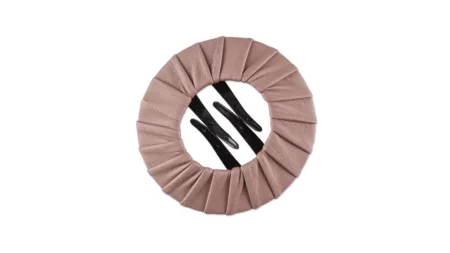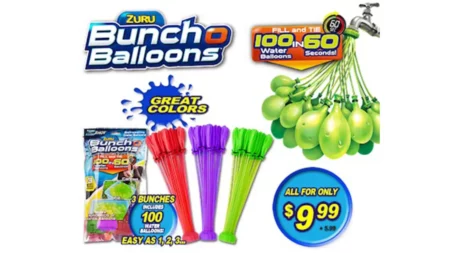Why Licensing May Be the Best Move You Can Make With Your Invention
Got a great invention? One of the first big choices you'll face is whether to license it to an established company or bring it to market yourself.
Both routes have their pros and cons. Licensing can offer speed and scalability, while manufacturing gives you full control and potentially greater rewards. It all depends on your goals, skills, and how hands-on you want to be.
You don’t have to commit to one path forever either – many inventors start with one strategy and switch later as their idea evolves. One route might make sense today, and another could suit you better down the road.
Here’s a breakdown of how the two paths stack up – plus expert insights and success stories
The Big Trade-Offs: Licensing vs. Manufacturing Yourself
1. Risk and Cost
Licensing hands off the heavy lifting – manufacturing, marketing, distribution – to someone else. It typically involves fewer logistics and less operational complexity. Manufacturing your own product gives you full control but also means managing everything from materials to delivery – a bigger commitment with potentially bigger rewards.
2. Speed to Market
Licensing often means faster access to shelves through your partner’s existing production and distribution channels. Manufacturing on your own can take more time to establish, but it also lets you control the entire timeline.
3. Scale and Reach
Licensing connects your product with broad, established networks, helping you scale quickly. Manufacturing gives you the opportunity to grow at your own pace – and on your own terms – though it may take longer to reach wide markets.
4. Control vs. Involvement
Manufacturing your product gives you full creative and business control, which some inventors value highly. Licensing, while offering less control over the final product and brand, frees you up from daily operations and business admin.
5. Making Money
Licensing typically means earning royalties on each sale, offering a more passive income stream. Manufacturing allows you to keep the full margin – but also means you're taking on all the responsibilities and risks that come with running the show.
Licensing Success Stories
PopClips by Lisa Lloyd (USA, 2024)
Lisa licensed her hair accessory to Conair, a global beauty brand. Thanks to their retail power, her product is hitting major stores without her having to run a business. Royalties roll in while she keeps creating.

ARM Holdings (UK)
ARM licenses chip designs to giants like Apple and Samsung. No manufacturing, no inventory – just innovation and partnerships. It’s become a multibillion-dollar strategy.
Bunch O Balloons by Josh Malone (USA/NZ)
Josh created a hit summer toy and licensed it to Zuru. The product went global fast, and he avoided the hassle of production and scaling. Licensing helped him focus on inventing, not running a toy company.

Sleeping Queens by Miranda Evarts (USA)
At just six years old, Miranda created a hit card game. Her family licensed it to Gamewright, and the game became an international success. A great example of licensing doing the heavy lifting.

What the Experts Say
"Licensing shifts the risk to the company taking on your product," says patent attorney Mike Biagio. That means fewer sleepless nights over whether your product will sink or swim.
Daniel O’Connor, commercialisation coach, points out that licensing can be a game-changer for those who don’t want to build a full-blown business. "You’re plugging into a machine that’s already running."
Creative freedom is a big bonus too. Licensing lets you keep dreaming up ideas instead of managing supply chains and customer service.
And when it comes to reach, licensing gives you a shortcut to international shelves. Why fight for shelf space when your partner already owns it?
Quality matters, and licensees often bring top-tier expertise in product development and marketing – giving your invention its best shot at success.
Still considering going solo? If you’ve got a clear vision, business savvy, and stamina – manufacturing might be your calling. But for most new inventors, the smoother path is licensing.
Final Thoughts
Whether you're aiming to grow a business or simply want to see your invention succeed in the world, there’s no one-size-fits-all path. Licensing and manufacturing both offer real opportunities – depending on where you are and what you want to take on.
Licensing can help you move fast, tap into existing networks, and focus on innovation without taking on the weight of running operations. Manufacturing gives you full control and the chance to build your own brand from the ground up – which might be the right fit if you’re ready to invest more time and energy.
Importantly, you're not locked into one approach. Many inventors start with one strategy and shift to the other as their idea develops or market conditions change.
The key is to make a choice that works for your goals right now – and stay open to evolving the path as your invention takes flight.
Sources:
• Cad Crowd – “Product Licensing vs. Manufacturing” (2023)
• UpCounsel Legal Guides – “Licensing vs. Manufacturing” (2025)
• IP Guardian (Mike Biagio, patent attorney) – “Contrasting Patent Licensing with Startup Commercialisation” (Aug 21, 2023)
• Press Release (PRLog) – “Inventor Lisa Lloyd Licensing Deal with Conair” (Feb 19, 2024)
• PatentPC Blog – “The Role of Patent Licensing in Innovation” (2024)
• Josh Malone – Personal account of Bunch O Balloons licensing (Inventor’s website, 2017)
• WIPO Magazine – “Play Your Cards Right – Young Inventor Shows the Way” (Success Story)
